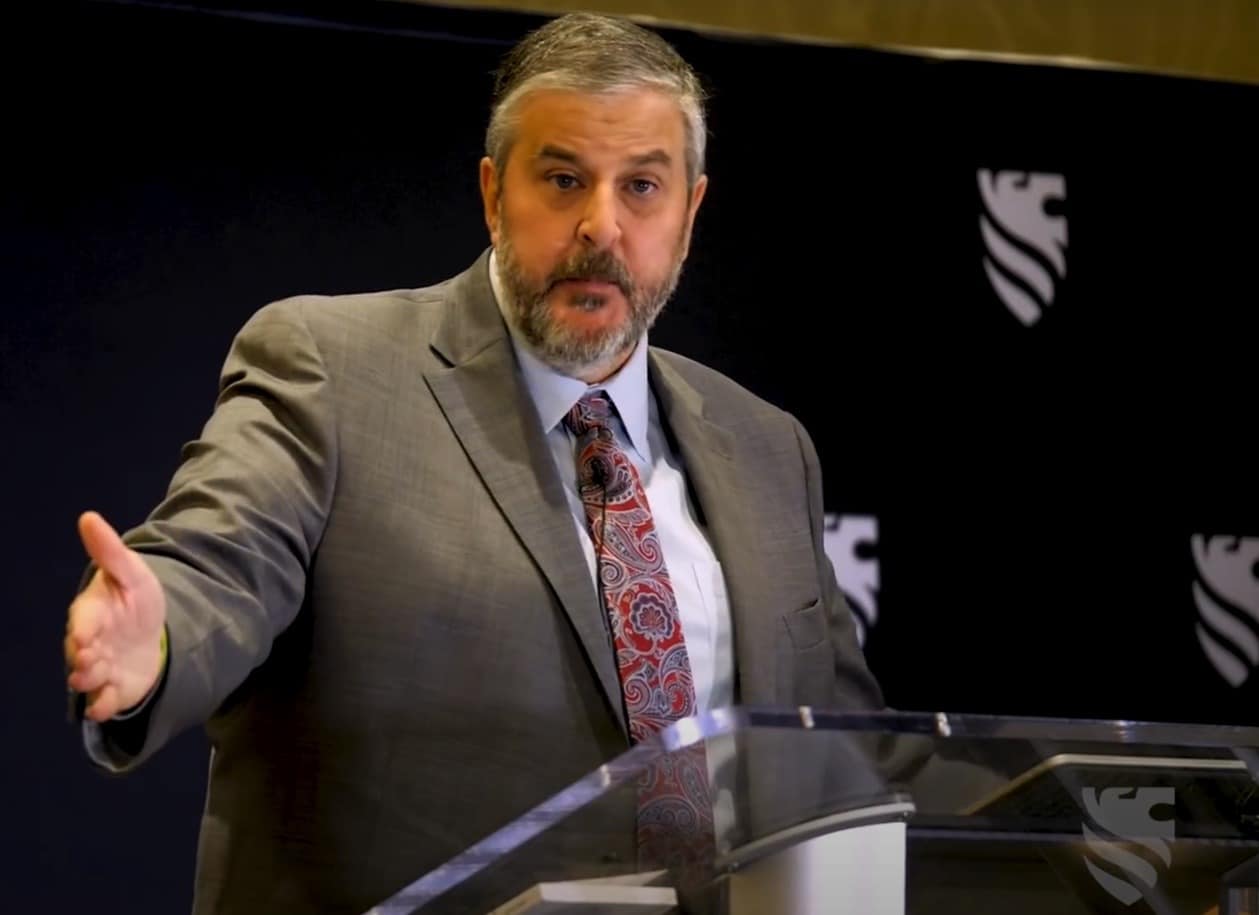There has always been both an abundance of timid preachers who are unwilling to wage spiritual warfare against false teaching, and a scarcity of bold preachers who are willing to denounce false teaching while declaring truth.
Hugh Latimer was a wonderful example of a preacher who boldly proclaimed God’s Word. He eventually was burned at the stake because he was unwilling to tone down his preaching. Latimer lamented that preachers of his day would not preach the Word of God with courage and believed they had become soft and more interested in worldly comforts than preaching a pure gospel.
Latimer was anything but soft and worldly. Spurgeon recounts the occasion when Latimer was invited to preach before King Henry VIII. Latimer offended the king with his bold message and ordered Latimer to return the following week to make amends. The next week, as Latimer stood before the king, he addressed himself as he began to preach:
“Hugh Latimer, dost thou know before whom thou art this day to speak? To the high and mighty monarch, the king’s most excellent majesty, who can take away your life if you offend him. Thou best not speak a word that may displease. But then consider well, Hugh, dost thou know who hath sent you to preach? Thou has been sent by the great and mighty God who is present everywhere and is able to cast thy soul into hell! Therefore, decide for whom thou wilt speak.”
Spurgeon, C. H.. The Metropolitan Tabernacle Pulpit, Vol. 10 (Pilgrim 1973), p. 407.
Hugh Latimer preceded to boldly preach the same sermon from the previous week. Praise God for preachers who are committed to “fight the good fight.”
Paul’s Charge to Pastor Timothy
Paul wanted Timothy to be such a preacher. He wrote him saying, “This command I entrust to you, Timothy, my son, in accordance with the prophecies previously made concerning you, that by them you fight the good fight” (1 Timothy 1:18).
Paul clearly views the pastoral ministry as a battle. There are certainly bad fights. Paul told Timothy to stay away from controversy (1 Timothy 1:4) and that an elder must not be quarrelsome (1 Timothy 3:3). Some wars are not worth waging. However, the problem often isn’t that pastors are unwilling to fight, but that they won’t walk away from bad fights and engage in the good fight. Clearly, there is a good fight, which is the battle for truth and the doctrines of the Christian faith.
Some wars are not worth waging. However, the problem often isn’t that pastors are unwilling to fight, but that they won’t walk away from bad fights and engage in the good fight.
This was not only true for Timothy’s setting. God’s people have never been able to simply slumber in the faith but have had to contend for the faith. Old Testament prophets constantly opposed false prophets. The bulk of Jesus’ teaching was an assault against the false teaching of the Pharisees. Every letter in the New Testament focuses on sound doctrine. Even the tiny epistle of Jude urges the church to “contend for the faith that was once for all delivered to the saints” (Jude 3).
The reality is that there has never been a time when the church has not faced the threat of false teaching. Until Christ returns, faithful pastors will be engaged in the ongoing battle against false doctrine. Of course, we work for peace, as much as it depends upon us, and should not look for fights. But if we believe that doctrinal unity can be achieved without a battle, we have not closely studied church history or Scripture.
Today’s Fight for the Faith
In light of Paul’s charge to Timothy, we should be concerned when we hear evangelical leaders talk about the need for a “big theological tent” in ministry partnerships. Sadly, in working to erect a “big tent” we have seen the unfolding of a theological circus.
Today some claim that fighting for doctrinal purity is a sinfully divisive pursuit at worst or unhelpful distraction from the focus of the Great Commission at best. However, the words of Jesus in the Great Commission would quickly dismiss such arguments.
Jesus commanded us to go and make disciples, “teaching them to observe all that I commanded you” (Matthew 28:19). It would be impossible to teach someone to carefully obey all that Christ has commanded without confronting any teaching that stands in opposition. It is not enough for a pastor to be sound in his doctrine, he must be willing to confront false teaching and say, “THIS is wrong.” False teaching is what is sinfully divisive, not calling out and correcting error.
It is not enough for a pastor to be sound in his doctrine, he must be willing to confront false teaching and say, “THIS is wrong.” False teaching is what is sinfully divisive, not calling out and correcting error.
In addition, we cannot just say, “Why can’t we just focus the mission of taking the gospel to a lost world?” The moment we say such a thing we have entered the arena of battling for the doctrinal truths of the gospel. If we are to carry out the Great Commission, we must explain who Jesus is, what he has accomplished, why we need him, how he is received, and the means of accomplishing the mission. Therefore, fighting for the faith is not a distraction from the Great Commission, it is a necessary part of the mission.
We need pastors who courageously stand for their theological convictions. And this will be met with opposition because many people view any conviction for truth and stand against error to be unloving. In the name of love, they are more than willing to accept any kind of theology that allows for anything. Truth be told, the reason many do not have the courage of their convictions is because they do not have any real convictions to begin with.
We need pastors who will stand in the pulpit and passionately declare truth and boldly expose false teaching. With God’s help, we must not allow government edicts, supreme court rulings, denominational resolutions, or any other attempt to dissuade us from carrying out our God given marching orders.
Truth be told, the reason many do not have the courage of their convictions is because they do not have any real convictions to begin with.
Like Hugh Latimer who stood before King Henry VIII, pastors will answer not to man but to God for the proclamation of His Word. Each time you stand in the pulpit, ask yourself, “Dost thou know who hath sent you to preach?” And then preach in light of the obvious answer.
G3 Ministries stands ready to equip pastors for the duty to which they have been called. Our hope is that we will all boldly preach the truth without compromise and live in such a way that is personally committed to the truth we preach. Ministry is not easy, but warfare never is.




